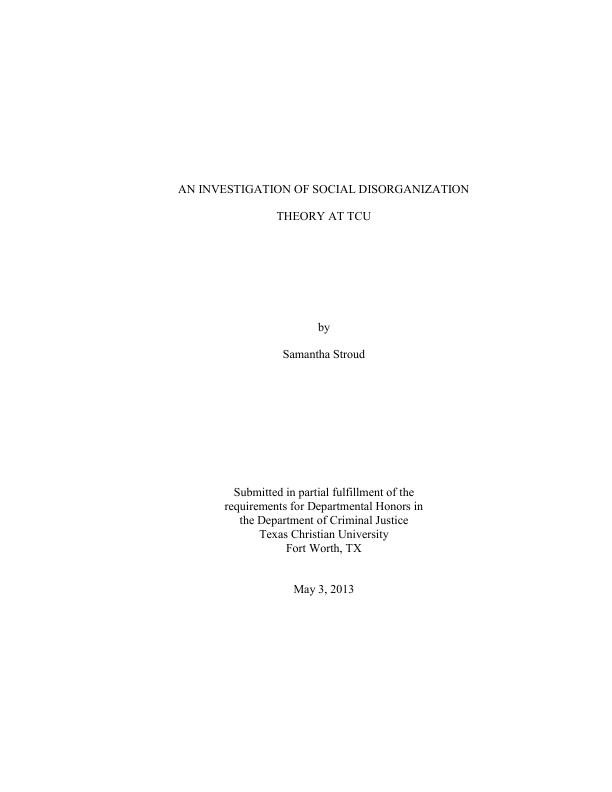An Investigation of Social Disorganization Theory at TCUShow full item record
| Title | An Investigation of Social Disorganization Theory at TCU |
|---|---|
| Author | Stroud, Samantha |
| Date | 2013 |
| Abstract | The relationship between criminal behavior and community ties as theorized within social disorganization literature has rarely addressed one important and unique environment: the college campus. To investigate the way in which previous research and theory applies to on-campus residence halls at Texas Christian University in Fort Worth, TX, a series of qualitative interviews were conducted. A general hypothesis that residence hall communities with stronger ties and efficacy would present fewer delinquent characteristics presented the basis for interview questions and investigation, with questions and concepts rooted in previous research. Results from the interviews, which included Resident Assistants, residents from various communities, and a Hall Director, support the hypothesis and indicate that variables such as hall size, shared community characteristics (such as single gender or Honor's students), and the years of residents (freshman, upperclassmen) all served to mediate this relationship. Results also showed that student affairs practices and policies seemed to align with social disorganization theory, implicating a correlation between disciplines and an ideal situation to test criminological theories. |
| Link | https://repository.tcu.edu/handle/116099117/7338 |
| Department | Criminology and Criminal Justice |
| Advisor | Polzer, Katherine |
| Additional Date(s) | 2013-05-03 |
Files in this item
This item appears in the following Collection(s)
- Undergraduate Honors Papers [1463]
© TCU Library 2015 | Contact Special Collections |
HTML Sitemap



